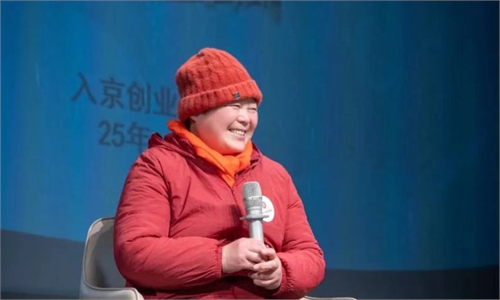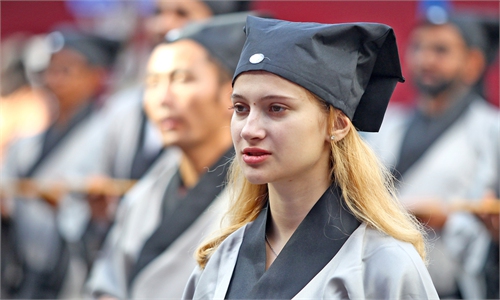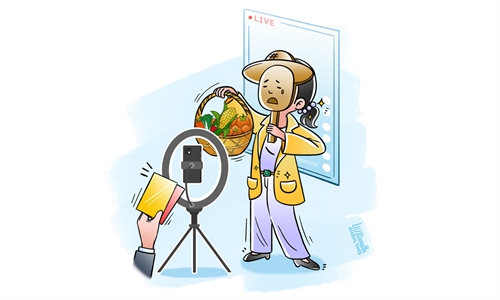ARTS / CULTURE & LEISURE
Dedication to education earns public recognition

Illustration: Liu Xiangya
Higher education is not a frequent topic on social media, but two Chinese professors have recently provoked national discussion after their stories went viral online.
On the personal homepage of Northwestern Polytechnical University's official website, professor Lü Zhenzhou published a list which included information such as the graduation year, name and occupation of all her master's and doctoral degree students who graduated before September 2022. She emphasized that she always guides her students without help from others during their time at the university.
The disclosure went viral on social media, sparking discussion from all sectors of society. For one thing, most of her graduate students work in state-owned enterprises and universities. Many of her doctoral students have become professors or associate professors, while most master's students have landed jobs in research institutions. From the view of secular standards, each student has a promising future, which is an impressive achievement for an advisor.
For another, her hands-on approach with her students is rare nowadays. The professor mentioned that she has never entrusted any graduate student to the guidance of young teachers in the research group before and would not do so later.
Many netizens spoke highly of the approach, saying that the professor embodies responsibility and sets a good example.
Still, we need to look at the approach from another perspective. For example, if the professor leads and cultivates more young teachers, this method can be widely learned, and the number of students who will benefit in the future will increase exponentially. In other words, promoting good educational practices can improve overall social welfare.
In addition, young teachers with various academic backgrounds can provide students with fresh perspectives and help enrich their interdisciplinary knowledge to a certain degree. At present, well-known universities across the country are promoting student recruitment and cultivation reform across a broad range of categories. Correspondingly, this calls for cross-disciplinary guidance from tutor groups and academic teams to improve training quality.
The other professor Chen Zhixin from Beijing Normal University gained 1 million followers on video sharing platform Bilibili in just three days. Because his course "An Introduction to Social Sciences" could not be offered offline this semester, the teacher made a 28-hour video course and personally distributed flyers to promote the online course in self-study rooms.
The flyers read, "Free online course, non-credit, no assignments, Q&A, or exams. Come and go at will." On March 27, he had around 4,000 followers, but in just two days this number exceeded 1 million.
According to the professor, this course covers most social sciences and humanities categories. Due to its complexity, it is challenging to take on as a research-oriented major, so some schools have axed it. To fill this gap, he created an online version to encourage more people to study the subject. Just as Wang Xiaobo, a distinguished Chinese writer, once shared that when he was in college, a math professor told him and his fellow students, "The mathematics I'm teaching may not be useful in your lifetime, but I still need to teach it because it's good knowledge."
The two professors' rise on the internet reflects public expectations pinned on higher education and their hopes that professors will take responsibility, earnestly impart knowledge, and guide students to resolve doubts. The reform of education in China is never ending. Still, no matter how it is transformed, this level of dedication to education should always remain the same.
The author is a faculty member with the School of Applied Economics, Renmin University of China.






